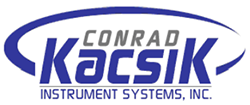Navigating the Nadcap Merit Process: Benefits and Challenges
Achieving Nadcap merit status can offer significant benefits for suppliers, such as reduced audit frequency and potential cost savings. However, it’s crucial not to become complacent and let quality system requirements slide. Understanding the requirements and implications of the merit process is essential for maintaining high standards.
What is Merit?
Merit allows Nadcap-accredited suppliers to reduce their audit frequency to every 18 months or, if you meet certain criteria, every 24 months. This merit process may not be good for every supplier. It really depends on your management system and support. Your company may have a management system that is very involved and is able to support the two-year merit process. Other companies may not have the support needed. Below are the separate requirements needed to achieve merit.
18-Month Merit
To qualify for an 18-month audit interval, suppliers must meet the following requirements:
- Achieve at least the second reaccreditation audit in the commodity.
- No Non-Sustaining Corrective Actions identified on the current or previous accreditation audit.
- No verification of corrective action (VCA) audits resulting from the current or previous accreditation audit.
- No Type C Auditee Advisories issued by the Task Group since the previous accreditation audit.
- No more than 14 days of cumulative delinquency.
- No more than 50 percent of major and 60 percent of total NCRs allowed for mode B reaccreditation audit failure criteria.
- Any other reason defined by the Task Group or documented in the audit merit screen and approved during Task Group Review.
24-Month Merit
For a 24-month audit interval, suppliers must meet these stricter criteria:
- Previous two consecutive accreditations in the commodity must have been at least 18 months each.
- No major NCRs.
- No more than seven days of cumulative delinquency.
- Any other reason defined by the Task Group or documented in the audit merit screen and approved during Task Group Review.
Maintaining Merit & Compliance
Achieving merit status is one thing, but maintaining it requires ongoing diligence. Suppliers sometimes become too relaxed with their quality assignments, leading to issues discovered in the next Nadcap audit, particularly for those on a two-year merit cycle. To avoid this, it’s advisable to operate as though audits occur every 12 months, conducting regular internal audits and continuously reviewing documentation, testing, and verifying production cycles.
The Nadcap merit process can be advantageous for suppliers, providing longer intervals between audits and potential cost savings. However, it is essential to maintain rigorous quality standards to ensure ongoing compliance. Each supplier must evaluate their own management system's capability to support the merit process effectively.








